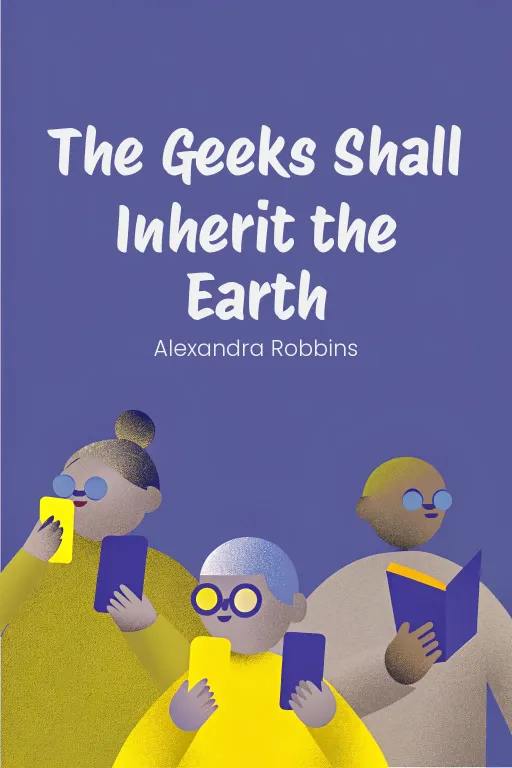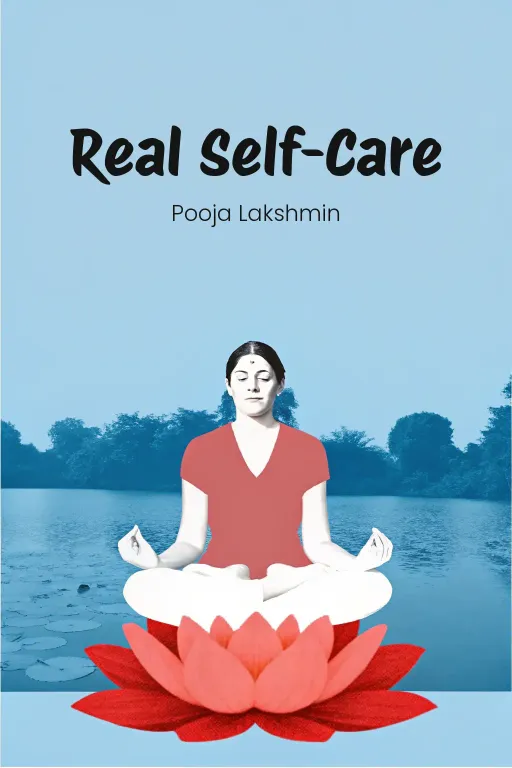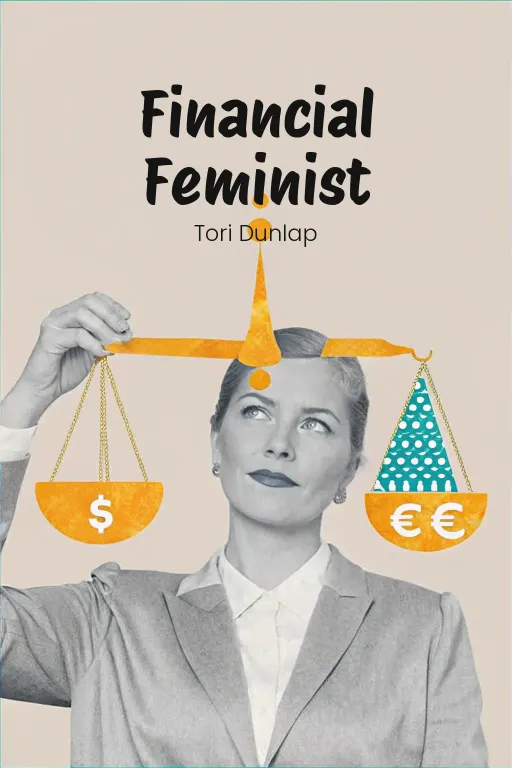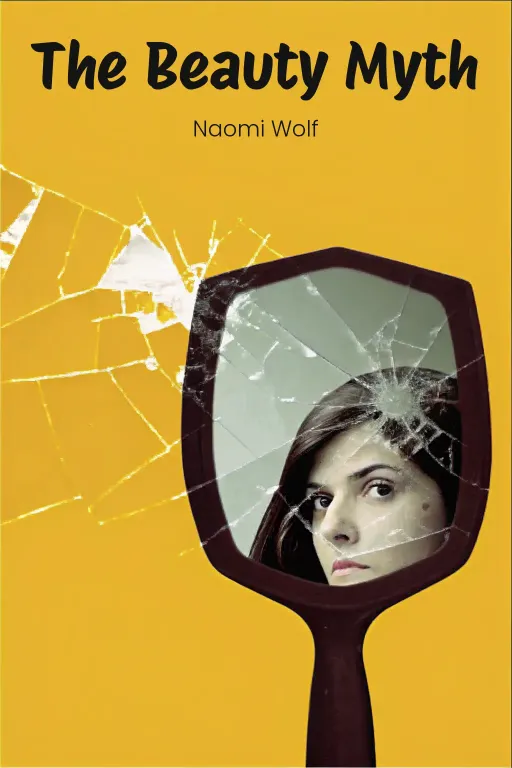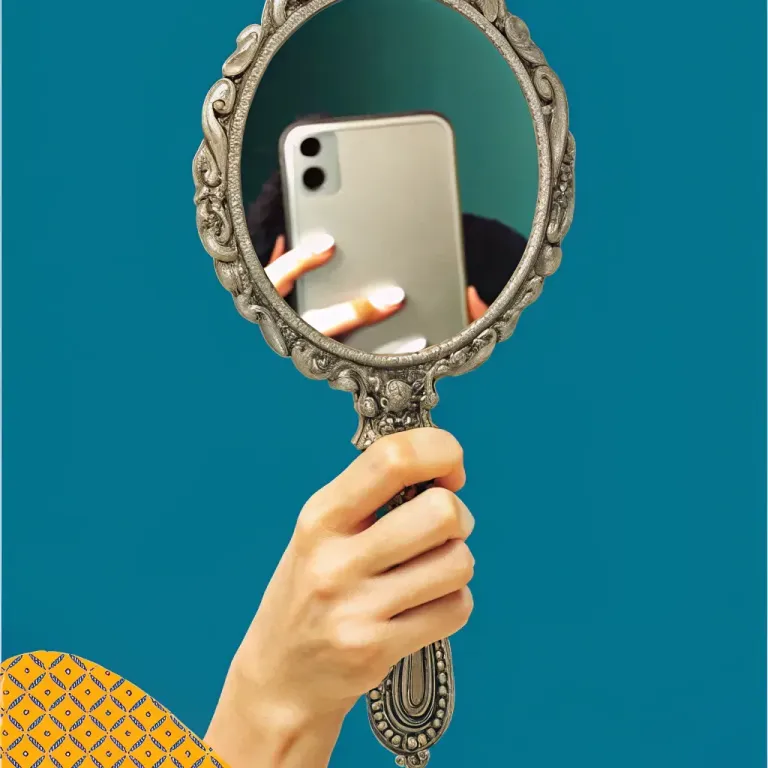
Ditch the Ideal: Find Your Real Self
Podcast by Civics Decoded with Thomas and Grace
How We Became So Self-Obsessed and What It’s Doing to Us
Introduction
Part 1
Thomas: Hey everyone, welcome back to the podcast! So, let me start with a question: Have you ever found yourself chasing some ideal, right? Like, the dream job, the perfect physique, or even just that flawless Instagram post? And then you stop and think, "Wait a minute, who even decided this was the standard to begin with?" Grace: Uh, yeah, that's basically my daily routine. And honestly, I don't even need to ask where these standards come from—it’s my social media feed, duh! But, in all seriousness, isn't the pursuit of perfection kind of… timeless? Like, haven't humans been obsessed with being perfect since, like, forever? Are we just slapping a fancy new label on an age-old problem? Thomas: Well, that's the interesting thing, it’s both yes and no. And that tension is exactly what the book we're discussing today, "Selfie: How We Became So Self-Obsessed and What It’s Doing to Us," is all about. The author “really” digs into how our sense of self, both individually and as a society, has changed over thousands of years. Through history, technology, psychology, and “really” breaks down the cultural forces that have turned us into our own worst critics. Grace: A complete history of self-obsession, huh? I can just picture ancient Greeks agonizing over the perfect angle for their sculptures. So, are you telling me that this book breaks down how we went from, like, deep-thinking philosophers like Socrates to influencers posting gym selfies? Thomas: Pretty much, yeah! And here's the game plan for today's discussion: First, we're going to look at how early tribal structures and Greek individualism kind of laid the groundwork for how we see ourselves today. Then, we'll dive into the psychological theories—you know, from Freud's ideas about our primal urges to humanistic approaches to self-improvement—that have shaped our understanding of the self. And finally, we'll untangle the mess we're in now, where tech companies and social media platforms are just fueling this epidemic of perfectionism that we all experience to some degree. Grace: Tribal instincts, Freud, and Zuckerberg? That's quite the lineup of culprits behind our self-obsession! So, we're basically peeling back the layers to try and understand why we're caught in this never-ending loop of comparing ourselves to others, right? Thomas: Exactly. And maybe, just maybe, we'll catch a glimpse of a way out of this spiral by exploring these concepts of authenticity and embracing imperfection that the book talks about. Ready to jump in?
Historical and Evolutionary Contexts of Self
Part 2
Thomas: Okay, so let's dive into the very foundation of identity, it all started with survival, really. The tribal instincts of early humans were all about sticking together—because, honestly, you weren’t going to last long on your own back then with all those predators around. Your reputation, where you stood in the tribe, that was everything. It determined if you got enough food, if you were safe, your very survival. Grace: Right, makes sense. Being the caveperson who got along with everyone meant you probably weren't left to fend for yourself on hunting trips. But how does that primal, collective mindset connect to our obsession with ourselves today? I mean, isn't it kind of the opposite of everyone chasing personal glory? Thomas: That’s what’s so interesting! Those instincts for social acceptance, they didn't just disappear, they evolved. Back in those tribal days, competition and comparing yourself to others, it was all there. It served the purpose of the group's survival. Now, think about today, our "tribes" aren't hunter-gatherer communities. They're online followers, coworkers, our social circles. And our reputation is measured in likes, shares, and influence. Digital stuff, you know. Grace: So, Instagram is basically a digital Savannah? Except instead of making sure we don't starve, we're just craving these likes and validation? I got you. Thomas: In a way! The book even compares our need for social standing to how chimpanzees behave in their troops. Alliances, rivalries, even punishments. They're all strategies for surviving within the group. It’s fascinating to see how those ancient power dynamics still influence "cancel culture." Think about it, one wrong move online, and your entire digital reputation can just vanish overnight. Grace: So, we've traded spears for tweets. It's really not so much about literally surviving anymore, but about emotional survival within our chosen online tribes. It's depressing. What's next on this rollercoaster? Thomas: Next, things really shift, we are talking about Ancient Greece. For the first time, identity started moving away from just collective survival toward individualism, toward self. Greek thinkers like Socrates and Aristotle, they emphasized looking inward, improving yourself, and striving for personal excellence. The concept of "arete," which means excellence or virtue, became central to how people viewed themselves. People were encouraged to reach their full potential. Grace: Ah, the Greeks, the OG humblebraggers. It sounds noble, but wasn't it still about getting recognition from the public, like winning debates or at the Olympic? How is doing that really any different from posting a gym selfie? Thomas: Exactly. For the Greeks, your identity was very tied to getting outside validation and being respected for your skills at the agora, that was a sign of status. But what was revolutionary was how they framed it. It wasn't just about showing off, it was about realizing your potential as a human being. Socrates famously said, "The unexamined life is not worth living," which basically means that knowing yourself was a moral and philosophical duty. Grace: So, instead of knowing how many strangers liked your post, you needed to know thyself. Definitely sounds more dignified, but let’s just remember that this was mostly limited to upper-class blokes. What about everyone else who didn't get a seat at the table? Thomas: Of course. The Greek ideal of individualism, it wasn’t for everyone. But even with its shortcomings, it gave us the foundation for Western individualism. Self-awareness, personal freedom, public life, these concepts still shape how we view success today. Grace: Okay, so Western cultures got hooked on the idea of glorifying individuals. But what about the people who thought, "Hey, maybe it shouldn't be all about me"? Thomas: That’s where Eastern philosophies, especially Confucianism, offer such a contrast. The Greeks were all about individual achievement, while Confucianism was based around communal values such as harmony, relational identity, and fulfilling your role in society. For Confucius, your value came from how you contributed to your family and community, not from what you personally achieved. Grace: Right, so it’s less "Look at me!" and more "How can I help?" But is there a downside? Isn't there a risk of stifling individuality when you prioritize the group? Thomas: That’s a fair point, but Confucianism wasn’t about erasing individuality, more about finding a balance between it and the needs of society. Virtues like humility and respect allowed cooperation in societies, especially those agricultural ones. Success was not about standing out, but playing your role well and ensuring your group thrived. Grace: And that's why we see such different cultures today which have been influenced by these philosophies. The West encourages you to "Be the best," the East encourages you to "Be part of the whole." It's a real clash of mindsets. Thomas: Definitely. The book shows this using a case study with two towns in New Mexico: Rimrock, deeply rooted in Mormon values, which are rooted in collectivism, and Homestead, founded by independent Dust Bowl migrants. In Rimrock, the townspeople focused on communal things, like building a community gym, while in Homestead, that kind of teamwork was much harder to achieve. The contrast shows how cultural history shapes not individual choices but entire communities. Grace: So, neither mindset is better, it all depends on the situation. I am guessing Rimrock's collectivism kept things running efficiently, while Homestead's individualism probably encouraged self-reliance and resourcefulness. Thomas: Absolutely. Both approaches have their strengths and their weaknesses. All of this is shaped by history, culture, and environment. if you understand these fundamental differences, you are able to see things a lot more clearer when it comes to modern struggles when it comes to selfhood.
Psychological and Cultural Evolution of the Self
Part 3
Thomas: Understanding these historical roots really sets the stage for how psychological theories further developed our modern self-concept. What I find fascinating is how the journey of the self—from Greek ideals of public excellence to Freud’s unconscious conflicts, and then the Human Potential Movement’s optimism—chronologically maps an ever-evolving understanding of identity. Grace: So, we've gone from striving for outward perfection to moral introspection, then dove into the murky waters of unconscious desires, and “finally” landed on the idea that humanity is inherently good, just waiting for the right environment to blossom. Quite the evolution! Where do we even “begin” breaking this down? Thomas: Let’s start with Ancient Greece and then move into the Christian introspective turn. In Greece, public achievement and societal validation were everything. Think of their physical and intellectual competitions—the Olympics, philosophical debates—it was all about striving toward areté, or individual excellence. The goal wasn't just personal glory, but communal admiration. Grace: So basically, being a philosopher in a toga back then was a mix of Socrates and... a sports influencer, right? Got it. But I'm having a little trouble seeing this shift from outward to inward focus you mentioned. Weren't the Greeks obsessed with public recognition? Thomas: They were, but here’s what’s interesting: their concept of excellence wasn’t about vanity; it was tied to fulfilling your purpose “as” a human being. Socrates, for example, framed self-awareness as a universal responsibility. When he said, "The unexamined life is not worth living," he wasn’t just praising external achievements, but he was more of the pursuit of deeper self-knowledge. Yet, this ideal was inherently public—you excelled as an individual “to” elevate your polis, your community. Grace: Hmm. So, they didn't see a separation between individual success and community advancement. That feels like a far cry from today's "winning at all costs" mentality. Okay… here comes Christianity in this timeline, turning everybody's focus inward, right? Thomas: Correct! With Christianity's rise, it reframed personal identity around moral introspection rather than public achievement. It introduced the radical idea that true worth wasn't earned through societal validation or outward accomplishments, but found within, often through humility and self-discipline. The rise of monasticism really embodies this shift. Grace: Monasticism? You mean all those silent monks in robes quietly tilling fields? Thomas: Exactly. Take Pluscarden Abbey in Scotland, for instance. Established in 1290, this Benedictine monastery followed strict rules emphasizing humility, labor, and prayer. One visitor described a monk named Father Martin as someone who truly embodied this inward struggle. He spoke about the "battle with one’s desires" as a lifelong pursuit—rejecting ambition in favor of serving the community and seeking divine alignment. Grace: That paints a pretty vivid image of internal struggle. But wasn't the suppression of ambition kind of counterproductive? I feel like if everyone went full monk-mode, progress in areas like science, art, and innovation might have stalled out. Thomas: That’s true, to an extent. The Christian notion of striving for inner perfection rather than outward success did curb the kind of individualism that spurred the Renaissance and later Enlightenment thought. But it wasn't a total retreat. This inward outlook laid a foundation for understanding the self as complex, reflective, and tied to moral or spiritual growth—concepts that definitely persist in modern psychological theories. Grace: Right, so, the monks laid the groundwork for what Freud would dive into centuries later—the internal battles nobody sees. Let's get into that. Where does Freud fit into all this? Thomas: Freud took this inward turn and gave it a new spin by focusing on the unconscious—the aspects of our identity shaped by desires and conflicts we’re not even aware of. His famous theory of the Oedipus Complex, for instance, revealed the internal tensions driving human behavior. Inspired by the Greek tragedy Oedipus Rex, he theorized that children unconsciously compete with their same-sex parent for the attention and affection of the opposite-sex parent. Grace: Freud really decided to go straight to the deep end, huh? I mean, it's bold to suggest everybody's psyche is shaped by a love triangle within their own family. Where's the evidence for this, though? “Feels” like he relied on way too much anecdotal analysis. Thomas: That’s a fair critique, and Freud himself acknowledged how personal his theories were. He even spoke openly about identifying with the Oedipal struggle in his own life. Whether or not the theory applies universally, it revolutionized psychology by introducing the idea that much of who we are stems from hidden conflicts and impulses. To Freud, those unchecked instincts were tied to human frailty—he believed life was a constant struggle to manage them. Grace: So, according to Freud, we're all just emotional battlegrounds, doomed to wrestle our inner demons indefinitely. Uplifting stuff. Tell me, though, was there anyone willing to challenge this grim view of humanity? Thomas: Yes, and that's where the Human Potential Movement of the 20th century comes into play. Think of it as Freud’s optimistic foil. Figures like Carl Rogers argued that humanity isn’t fundamentally flawed, but inherently good. He introduced the idea of unconditional positive regard, or the belief that people thrive when they feel accepted without judgment. Grace: That is a “huge” departure from Freud's "struggle forever" mantra. It's almost like saying, "Just love people as they are, and they'll blossom." “Feels” very 1960s, with all the flower crowns and free love. Thomas: You’re not wrong about the timing! The movement gained traction during the cultural revolutions of the ‘60s. Institutions like the Esalen Institute became hubs for exploring this potential. They hosted encounter groups where people broke down emotional barriers and openly shared vulnerabilities, fostering personal growth. It was transformative, but not without its critics. Grace: Let me guess—the critiques called it self-indulgent, right? Sitting around in encounter groups telling people how you feel can only lead to so much progress in the real world. Thomas: Exactly. While the movement emphasized authenticity, some saw it as fostering narcissism or unrealistic expectations for continuous growth. Still, it helped normalize a more optimistic view of the self—one based on the idea that people are capable of overcoming challenges, given the right tools and support. Grace: So, we've come full circle—from Greek excellence, to Christian introspection, to Freud's struggles, to Rogers lighting a candle of hope for humanity's goodness. It's a lot to take in, but it really shows how our identity has been shaped by these cultural and psychological waves over time. Thomas: And it highlights the ongoing tension: Are humans inherently flawed and in need of constant management, or are we innately good and simply need nurturing environments to thrive?
The Rise of the Modern Self in Technology and Neoliberalism
Part 4
Thomas: So, with these psychological frameworks established, it naturally leads us to how modern neoliberalism and technology have amplified this self-obsession. Let's dive into how economic systems and the digital age haven't just inherited these concepts of self, but have really warped and magnified them to fit this hyper-competitive and hyper-connected world we live in, you know? It's this collision of neoliberal individualism with the validation-seeking nature of tech that's really pushing perfectionism, and honestly, burnout, into overdrive. Grace: Okay, so we're moving from these kind of subtle philosophical musings to talking about global systems now. Neoliberalism and tech, these two powerhouses of modern life, are joining forces to just turbocharge our mental health crisis? Should we maybe take on one monster at a time, or just jump right into the chaotic overlap where they meet? Thomas: Well, let’s untangle them step by step. First up, neoliberalism, right? It's this economic philosophy that really prizes competition and self-reliance. It's rooted in the idea that everyone is ultimately responsible for their own success or failure. Which, on the face of it, sounds empowering, right? Freedom to build your own destiny and all that. But you know, this book paints a much more troubling picture of how that's actually led us here. Grace: Ah, the old "pull yourself up by your bootstraps" thing. Except no one ever seems to mention that some people's boots aren’t even laced up properly in the first place. So I guess the book explores how this, you know, almost blind faith in self-reliance actually creates more inequality than it does opportunity. Thomas: Exactly! And that whole illusion of meritocracy is totally key. One of the book’s main critiques is how neoliberalism effectively turns individual achievement into, not just a goal, but a moral mandate and a measure of self-worth. It’s no longer enough to want success, you’re expected to achieve it. And your personal "failures" are framed as... well, entirely your fault, you know? Grace: Right, so it’s like we’ve hit this kind of societal level of "if you're not thriving, what's wrong with you?" It completely ignores the real-world barriers that people actually face. But where does this mindset even come from? Because it seems like a pretty recent shift in the grand scheme of things. Thomas: Actually, it’s not as recent as you might think. Ayn Rand’s philosophy of Objectivism played a huge role here. Her novels, like Atlas Shrugged, kind of idolize the self-made entrepreneur, the lone genius who thrives through sheer ambition and innovation. Rand actually treated altruism as a kind of weakness, and she argued instead for what she called "virtuous selfishness." And while her ideas weren't universally accepted, they definitely struck a chord with this hyper-individualistic culture that “really” took root in the 20th century. Grace: Wait, so we’re calling CEOs the heroes of modern mythology now? I mean, loving ambition is one thing, but what happens when that ambition just… tanks? When your start-up fails or your big idea just fizzles out? Does Rand have a chapter for that particular scenario? Thomas: Not “really”, no. And that’s part of the problem, see? This relentless pursuit of personal success “really” ignores the structural barriers in society. So, things like privilege, inequality, or just plain bad luck. You know, the book uses the gig economy as a prime example of this. It's touted as this ultimate space for self-starters, right? Flexible hours, no boss hovering over you. But in practice it often leaves gig workers isolated, financially insecure, and just totally tied to this app-driven treadmill of endless hustle. Grace: Right, they sell you this dream of independence. But what you “really” get is working unpredictable hours just to make ends meet, with like, no health benefits if you pull a muscle delivering yet another takeout order. It sounds like a system designed to make people feel like their struggles are personal failures, even though the whole thing is set up that way. Thomas: Exactly! Neoliberal values “really” turn these systemic cracks into individual burdens. And just as this ideology makes us blame ourselves for not being "enough," technology has kind of stepped in to heighten the stakes, don't you think? Social media, in particular, thrives on, and profits from, this constant need to perform and compete. Grace: Ah, welcome to the influencer economy, where you’re not just hustling for food delivery gigs—you're hustling for likes and validation. How did this shift even happen? Wasn't the digital world initially supposed to be this great equalizer? Thomas: It was, in the beginning. Doug Engelbart, he pioneered early computing, he “really” envisioned technology as a tool for collaboration and intellectual growth. But as the internet evolved, these platforms pivoted towards one thing: keeping users engaged for profit. Social media became like this ecosystem centered on visibility and validation, where "likes," followers, and carefully curated personas “really” determine social standing. Grace: So now, instead of building thriving online communities, we're just putting on a show for… imaginary digital audiences. How did these platforms manage to hook us so deeply into this whole system? Thomas: Well, at their core, these platforms exploit our “really” primal tribal instincts. Humans naturally seek social validation, right? It's tied to these feelings of reward and security that kept us alive back in the early days. But social media amplifies this in a “really” toxic way. Every notification, every like, triggers that dopamine hit, which creates this loop of craving and dependency. And this constant "performance mode" “really” distorts self-perception, especially for the younger users. Grace: That does sound like a particularly grim episode of Black Mirror. Speaking of this distorted self-perception, it makes me wonder how much of our modern anxiety stems from this? Like, people are just constantly comparing their raw, messy lives to everyone else's, you know, manicured highlights, right? Thomas: Precisely! And the book doesn't hold back on the mental health consequences. There's one story that “really” stood out to me. It's about this young woman who admitted that she bases her entire self-worth on the comments her photos receive. If she posts and the likes don't pour in, her mood just crashes for the rest of the day. It's heartbreaking and sadly all too common, especially among teens who’ve grown up in this culture where validation is everything. Grace: So it’s like, one moment you're chasing love through a phone screen, and the next, you're just stuck in this pit of self-doubt. Classic bait-and-switch. But statistically speaking, has anyone studied just how damaging all of this “really” is? Thomas: Absolutely. Research has shown a “really” strong link between heavy social media use and anxiety, depression, and body image issues, particularly amongst adolescents. And it's alarming because it isn't just the content itself, it's the design of these platforms. They reward extreme behavior, whether that's posting increasingly perfected photos or even engaging in divisive debates. It traps people in cycles of constant comparison and ruthless perfectionism. Grace: Wow. So, we've gone from ancient Greeks striving for perfection to programmers engineering it directly into our thumbs. Between the gig economy’s constant hustle and social media’s validation trap, perfectionism isn’t just a cultural thing anymore—it's systemic. And yet, we're somehow expected to stay mentally sane through all of it? Thomas: It’s no wonder mental health challenges have totally skyrocketed. Neoliberalism tells us we're never doing enough, and digital platforms amplify every flaw we fear we have. So the book argues that to break free from this, we “really” need a cultural reset. We need to move toward narratives of embracing imperfection and also embrace collective efforts as opposed to this cutthroat individualism. It's radical, but you know, it just might be the solution.
Conclusion
Part 5
Thomas: Okay, so, to bring everything full circle, it's been quite the ride, hasn't it? We started with our primal instincts for survival and belonging, then moved on to the Ancient Greeks and their pursuit of individual excellence, followed by the Christian focus on inner reflection, Freud’s exploration of the unconscious, and finally, the rise of neoliberalism and tech-fueled perfectionism. It really shows how the way we perceive ourselves is constantly shifting, always influenced by the culture and society around us. Grace: Absolutely. And it seems like, along the way, we’ve built systems that keep pushing us to achieve more, seek more validation, and strive for some unattainable ideal of perfection. From the non-stop grind of gig work to the carefully curated images on social media, we’re trapped in this endless cycle of comparison and feeling inadequate. And honestly, it’s draining. Thomas: Totally. But the book's big message is that we don't have to accept this as our fate. One of the most important things it emphasizes is embracing imperfection—in ourselves and in others. It’s about consciously moving away from this constant need for “more” and instead, finding value in being real, being vulnerable, and connecting with our communities. Grace: I hear you, but that’s a tall order when we’re practically programmed to crave validation. Maybe the real game-changer—and opportunity—is redefining what we consider “success." Maybe it's not about being the absolute best, but about being comfortable just… being present. Thomas: Exactly! So, here’s my final thought for our listeners: What if we stopped focusing so much on who we think we should be and started appreciating who we already are? It's a subtle shift in perspective, but it could have huge ripple effects in how we see ourselves—and those around us. Grace: And while you’re at it, maybe take a little digital detox. Seriously, you might be surprised how good it feels to step away from the constant feedback loop, even if it’s just for a bit. Thomas: Couldn't agree more. Let's give ourselves—and each other—the space to be authentic. Connection, after all, should be the goal, not perfection.
